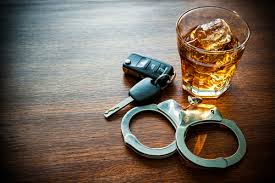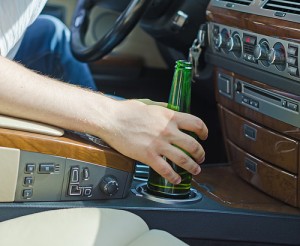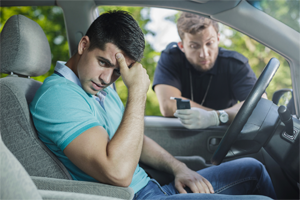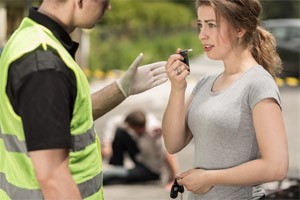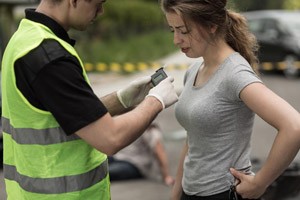 For nearly two decades, the state of New Jersey has had a legal blood alcohol content (BAC) limit of .08%. That means that if you are pulled over in this state and suspected of drunk driving, and you take a properly administered breathalyzer test that determines you had a BAC reading of over .08%, you can be found guilty of drunk driving.
For nearly two decades, the state of New Jersey has had a legal blood alcohol content (BAC) limit of .08%. That means that if you are pulled over in this state and suspected of drunk driving, and you take a properly administered breathalyzer test that determines you had a BAC reading of over .08%, you can be found guilty of drunk driving.
The BAC legal limit was lowered from .10% to .08% in every state across the nation nearly a decade ago (Delaware was the last state to adopt the .08% standard in 2004), after the National Transportation Safety Board (NTSB) made recommendations that the change could save lives. In 1998, a new Federal incentive grant was created to encourage states to adopt the .08 BAC illegal per se level, and, in 2000, Congress adopted .08 BAC as the national illegal limit for impaired driving.
Now, the NTSB is issuing new recommendations that the .08% BAC limit should be lowered again to .05% – and there are a few states that may be willing to follow suit, including New Jersey.
Utah to Become the First State with a .05% BAC Limit
Earlier this month, Utah Governor Gary Herbert signed the state bill that would lower the legal BAC limit to .05%, stressing repeatedly that it was an issue of public safety. The law would take effect in that state at the end of 2018. The law faced opposition from the local restaurant and tourism industry, who feared that the new law would make drivers irrationally afraid of consuming alcohol on business premises. However, the state is basing its decision on a number of studies that show a lower BAC limit could save lives, as well as precedent set by most countries in Europe.
Until then, the state plans to address some of the complications that could arise with lowering the
Why the NTSB Wants to Lower the BAC Limit
The NTSB is recommending that all states change their laws to lower the blood alcohol limit from .08% to .05% based on the belief that it will save lives and make the roads safer for everyone who drives on them. The NTSB actually made these same recommendations to congress in 2013, but the recommendations were rejected at that time.
The NTSB is renewing its push to change the law, pointing to studies that say lowering the legal limit will result in 500 to 800 lives saved every year across the country, based on data from the Centers for Disease Control (CDC) that shows the average 160-pound male man will have impaired coordination and difficulty steering with a BAC of .05%. That same man would be at the .05% limit if he only drink two or three drinks in an hour, as opposed to four alcoholic beverages to reach the .08% level.
What This Could Mean for You
Utah is not a complete outlier in trying to lower the legal BAC limit. Several states have laws that lower the BAC legal limit for second or third time DWI/DUI offenders, and several New Jersey publications discussed the issue when the NTSB released its recommendations last year.
If the BAC limit is lowered in this state, it could mean that the average driver would be more easily subject to arrest for driving under the influence of alcohol. For instance, a 120-pound person may be near or at the .05% limit after consuming only one drink – such as a glass of wine with dinner.
At the same time, the law would be much harder to enforce, because a person may not be as visibly intoxicated at the .05% level, and a police officer may have a harder time deciding whether or not to bring a driver back to the police station to administer a blood alcohol test.
Regardless of whether or not the law does change, we at the Edward M. Janzekovich Law Blog always recommend that you avoid drinking and driving. Depending on who you are, what you’ve had to eat that day, and/or what you are drinking, one drink can be enough to push your BAC over the legal limit, whether that limit is .05% or .08% or even .10%. At the same time, a BAC reading is not always perfect, and there may be legitimate reasons to challenge your arrest or charges for driving while intoxicated. If you or someone you know is pulled over or charged with drunk driving, the penalties can be extremely severe. For that reason, it is important to always consult an experienced lawyer. A DUI attorney may be able to fight the charges against you or have the charges dismissed completely.
New Jersey Drunk Driving Attorney Edward M. Janzekovich Can Help if You Are Arrested for Drunk Driving
A DUI/DWI charge can have life-changing consequences for any driver. Such a charge, and possible trial on the charges, can also be extremely complicated, especially with the laws changing all the time. If you are charged with drunk driving or driving under the influence of any substance in New Jersey, an experienced DWI/DUI attorney can make all the difference. To speak with an experienced New Jersey DWI lawyer about your situation, call us at 732-257-1137 or contact us online today. We serve clients throughout the state of New Jersey.





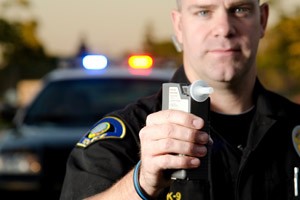 The law in New Jersey is different than 48 other states in that it treats a
The law in New Jersey is different than 48 other states in that it treats a 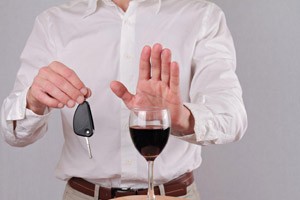 The consequences for getting a convicted of driving under the influence of alcohol or drugs in the State of New Jersey are potentially devastating. Even a first offense can result in jail time, loss of license, fines, and the potential loss of your ability to work or provide for your family and loved ones. If you have already been convicted of one or more prior DWIs, any additional offense will result in much more devastating penalties: mandatory jail, loss of license, and other increased punishments compared to the first offense.
The consequences for getting a convicted of driving under the influence of alcohol or drugs in the State of New Jersey are potentially devastating. Even a first offense can result in jail time, loss of license, fines, and the potential loss of your ability to work or provide for your family and loved ones. If you have already been convicted of one or more prior DWIs, any additional offense will result in much more devastating penalties: mandatory jail, loss of license, and other increased punishments compared to the first offense.